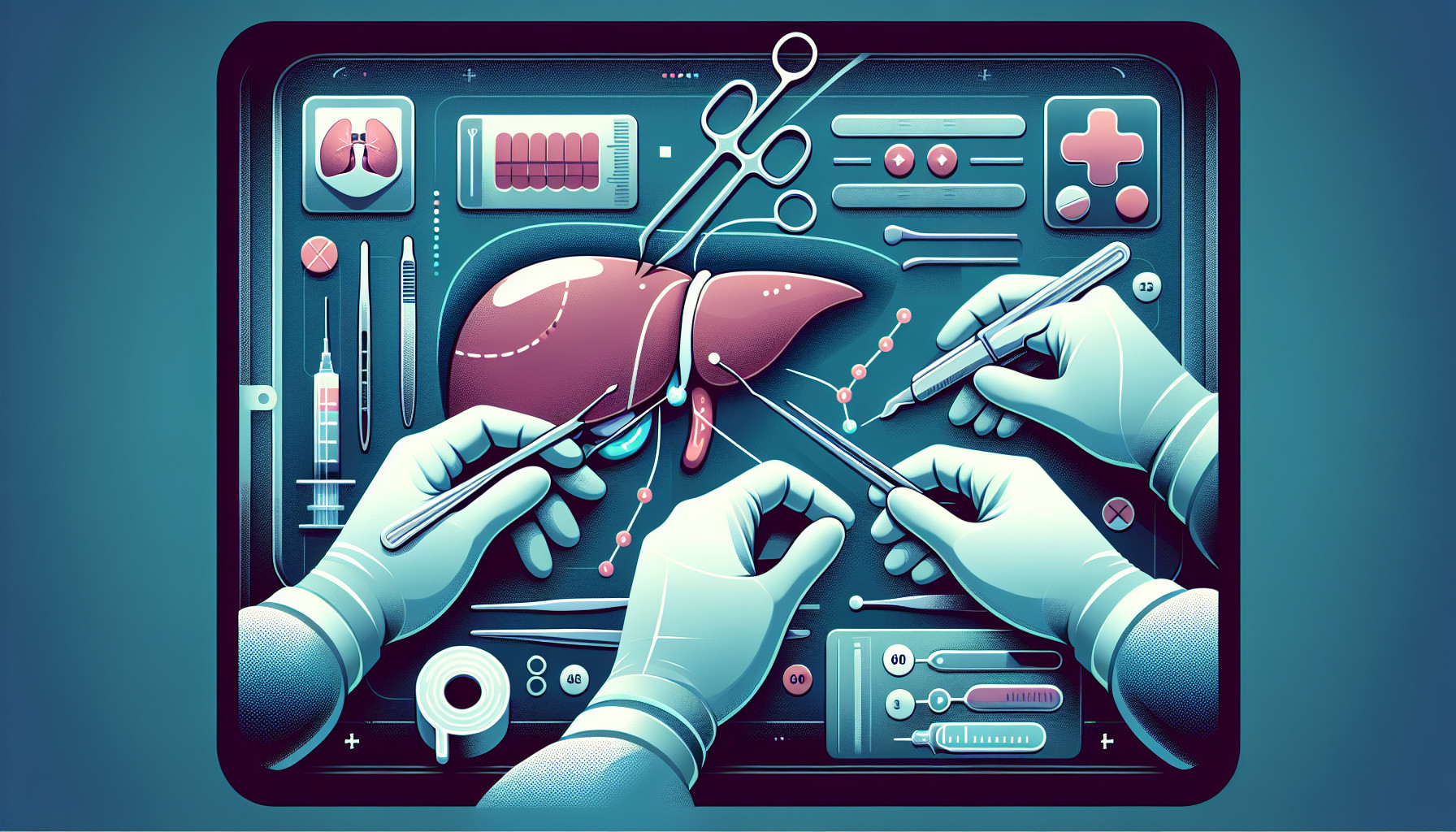Our Summary
This research paper is about a project called FNIH-NIMBLE, which aims to get approval for using certain biomarkers to diagnose a serious type of non-alcoholic fatty liver disease (NAFLD), known as non-alcoholic steatohepatitis (NASH). NASH is dangerous because it can lead to more severe liver problems and even death, but there are not currently any approved biomarkers to identify people who are at risk.
In this study, the researchers tested five different sets of biomarkers from blood samples to see if they could accurately diagnose NASH and how severe it was. They found that multiple biomarker sets met their target performance level, which was to be at least as good as existing tests for liver disease severity and better than a specific enzyme test for liver disease activity.
Specifically, one set of biomarkers (NIS4) had a good performance level for identifying people at risk for NASH. Three other sets of biomarkers (the ELF test, PROC3, and FibroMeter VCTE) were all good at identifying different stages of liver fibrosis, a sign of liver damage. In fact, the ELF and FibroMeter VCTE tests were better than a commonly used fibrosis test.
These results are an important step towards getting these biomarker sets approved for diagnosing NASH and the severity of liver fibrosis in people with NAFLD.
FAQs
- What is FNIH-NIMBLE and its role in the diagnosis of NASH-related biomarkers?
- How were the diagnostic performances of the five blood-based panels evaluated?
- How did the performance of ELF and FibroMeter VCTE compare to the FIB-4 test for fibrosis severity?
Doctor’s Tip
A doctor might tell a patient that a liver biopsy is a procedure where a small sample of liver tissue is removed and examined under a microscope to diagnose liver disease. They may also explain that while it is considered the gold standard for diagnosing certain liver conditions, it does carry some risks such as bleeding or infection. It’s important for the patient to follow any pre-procedure instructions given by their healthcare provider and to discuss any concerns or questions they may have before the biopsy.
Suitable For
Liver biopsy is typically recommended for patients with suspected or confirmed liver diseases such as non-alcoholic fatty liver disease (NAFLD), non-alcoholic steatohepatitis (NASH), hepatitis B and C, autoimmune liver diseases, and metabolic liver diseases. Specifically, patients who are at risk for advanced liver fibrosis or cirrhosis may be recommended to undergo a liver biopsy to assess the severity of liver damage and guide treatment decisions. Additionally, patients who do not have a clear diagnosis based on non-invasive tests or imaging studies may also be recommended to undergo a liver biopsy for further evaluation.
Timeline
Before liver biopsy:
- Patient is referred for a liver biopsy by their healthcare provider after abnormal liver function tests or imaging studies suggest liver disease.
- Patient undergoes pre-procedure assessments, including blood tests, imaging studies, and possibly a consultation with a liver specialist.
- Patient may need to stop taking certain medications that could affect the results of the biopsy.
- Patient receives instructions on fasting before the procedure and may be given sedation for comfort during the biopsy.
After liver biopsy:
- Patient may experience mild discomfort or pain at the biopsy site for a few days.
- Patient is monitored for signs of bleeding or infection following the procedure.
- Pathology report from the biopsy is reviewed by the healthcare provider to determine the presence and severity of liver disease.
- Treatment plan is developed based on the biopsy results, which may include medication, lifestyle changes, or further testing.
- Patient follows up with their healthcare provider for ongoing monitoring and management of their liver condition.
What to Ask Your Doctor
- What is the purpose of the liver biopsy in my case?
- What information will the liver biopsy provide about my liver health?
- Are there any risks or potential complications associated with the liver biopsy procedure?
- How should I prepare for the liver biopsy?
- Will I need to fast or make any changes to my medication before the procedure?
- How long will it take to receive the results of the liver biopsy?
- What will the results of the liver biopsy mean for my treatment plan?
- Are there any alternative diagnostic tests or procedures that could provide similar information to a liver biopsy?
- How often will I need to undergo a liver biopsy in the future?
- Are there any lifestyle changes or interventions that can help improve my liver health based on the results of the liver biopsy?
Reference
Authors: Sanyal AJ, Shankar SS, Yates KP, Bolognese J, Daly E, Dehn CA, Neuschwander-Tetri B, Kowdley K, Vuppalanchi R, Behling C, Tonascia J, Samir A, Sirlin C, Sherlock SP, Fowler K, Heymann H, Kamphaus TN, Loomba R, Calle RA. Journal: Nat Med. 2023 Oct;29(10):2656-2664. doi: 10.1038/s41591-023-02539-6. Epub 2023 Sep 7. PMID: 37679433
